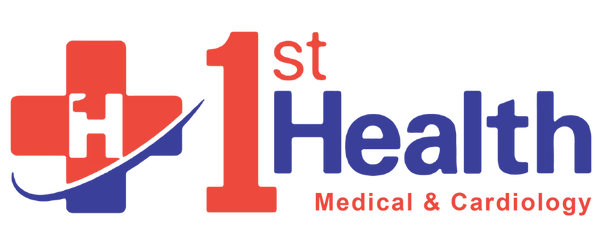Screening Tests: Proactive Measures for Maintaining Your Health

Screening Tests
Taking charge of your health is an empowering act. Screening tests are essential tools that empower you and your doctor to identify potential health risks early on, often before you experience any symptoms. This proactive approach allows for earlier intervention and treatment, leading to better health outcomes. Three crucial screening tests – blood pressure, cholesterol, and blood sugar – play a vital role in preventive healthcare. Let’s delve deeper into each test, understanding their importance and what they reveal about your well-being.
The Silent Threat: Blood Pressure Screening Tests
Blood pressure is the force exerted by circulating blood against the walls of your arteries. Imagine water flowing through a garden hose. The higher the pressure, the greater the force against the hose walls. Similarly, high blood pressure puts excessive strain on your arteries, increasing your risk for serious health complications. The beauty of blood pressure screening lies in its simplicity. It’s a painless and quick test that can be performed during a routine doctor’s visit.
Why are Blood Pressure Screening Tests Important?
High blood pressure, often dubbed the “silent killer,” often progresses without causing any noticeable symptoms. Regular blood pressure screening allows for early detection, enabling your doctor to implement strategies to manage it and prevent complications such as:
- Heart disease: High blood pressure is a major risk factor for heart attack, stroke, and heart failure.
- Kidney disease: Uncontrolled high blood pressure can damage the kidneys, reducing their ability to filter waste products from your blood.
- Vision problems: Chronic high blood pressure can damage the blood vessels in your eyes, leading to vision loss.
Understanding Your Blood Pressure Readings:
Blood pressure is measured in millimeters of mercury (mmHg) and consists of two readings:
- Systolic pressure: This is the top number and represents the pressure when your heart contracts and pushes blood out to your body.
- Diastolic pressure: This is the bottom number and represents the pressure when your heart relaxes between beats.
The American Heart Association (AHA) categorizes blood pressure readings as follows:
- Normal: Systolic < 120 mmHg and Diastolic < 80 mmHg
- Elevated: Systolic 120-129 mmHg and Diastolic < 80 mmHg (prehypertension)
- Stage 1 Hypertension: Systolic 130-139 mmHg or Diastolic 80-89 mmHg
- Stage 2 Hypertension: Systolic 140 mmHg or higher or Diastolic 90 mmHg or higher
Knowing your blood pressure numbers empowers you to work with your doctor to create a personalized plan for management, which may include lifestyle modifications, medication, or both.
Unmasking the Hidden Threat: Cholesterol Screening
Cholesterol is a waxy substance found in your blood. While your body needs cholesterol for certain functions, high levels of specific types of cholesterol can contribute to the buildup of plaque in your arteries. This plaque buildup narrows the arteries, restricting blood flow and increasing your risk for heart attack and stroke.
Why is Cholesterol Screening Important?
Similar to blood pressure, high cholesterol often doesn’t cause immediate symptoms. Regular cholesterol screening allows for early detection and intervention to manage cholesterol levels and reduce your risk of cardiovascular disease.
Understanding Your Cholesterol Profile:
A cholesterol screening, also known as a lipid panel, measures the different types of cholesterol in your blood:
- LDL (low-density lipoprotein): Often referred to as “bad” cholesterol because it contributes to plaque buildup in arteries.
- HDL (high-density lipoprotein): Considered “good” cholesterol as it helps remove LDL cholesterol from your arteries.
- Total Cholesterol: The combined amount of LDL, HDL, and other types of cholesterol.
- Triglycerides: Another type of fat in your blood. High triglyceride levels can also contribute to heart disease.
Your doctor will interpret your cholesterol profile and advise on strategies to manage your levels.
What Can You Do to Improve Your Cholesterol Levels?
Lifestyle changes like a healthy diet, regular exercise, and maintaining a healthy weight can significantly impact your cholesterol levels. In some cases, medication may be necessary to further lower your LDL cholesterol.
Keeping an Eye on Sweetness: Blood Sugar Screening
Blood sugar, also known as glucose, is the primary source of energy for your cells. Your body regulates blood sugar levels through the hormone insulin, produced by the pancreas. Blood sugar screening measures the amount of glucose in your bloodstream.
Why is Blood Sugar Screening Important?
Regular blood sugar screening is crucial for people with diabetes or at risk of developing it. Diabetes is a chronic condition that affects how your body regulates blood sugar. There are two main types:
- Capillary blood glucose test: A healthcare professional collects a drop of blood — usually from a fingertip prick. …
- Venous (plasma) blood glucose test: A phlebotomist collects a sample of blood from a vein (venipuncture).
Get Your Screening Tests Now
Don’t wait to take control of your health. If you are concerned about your health and want a blood screening conducted, contact 1st Health Medical & Cardiology today.
Schedule an appointment today.
